Description
“Ginger oil is known as the “Oil of Empowerment” and is predominantly for its ability to heal the mind, body and soul.”
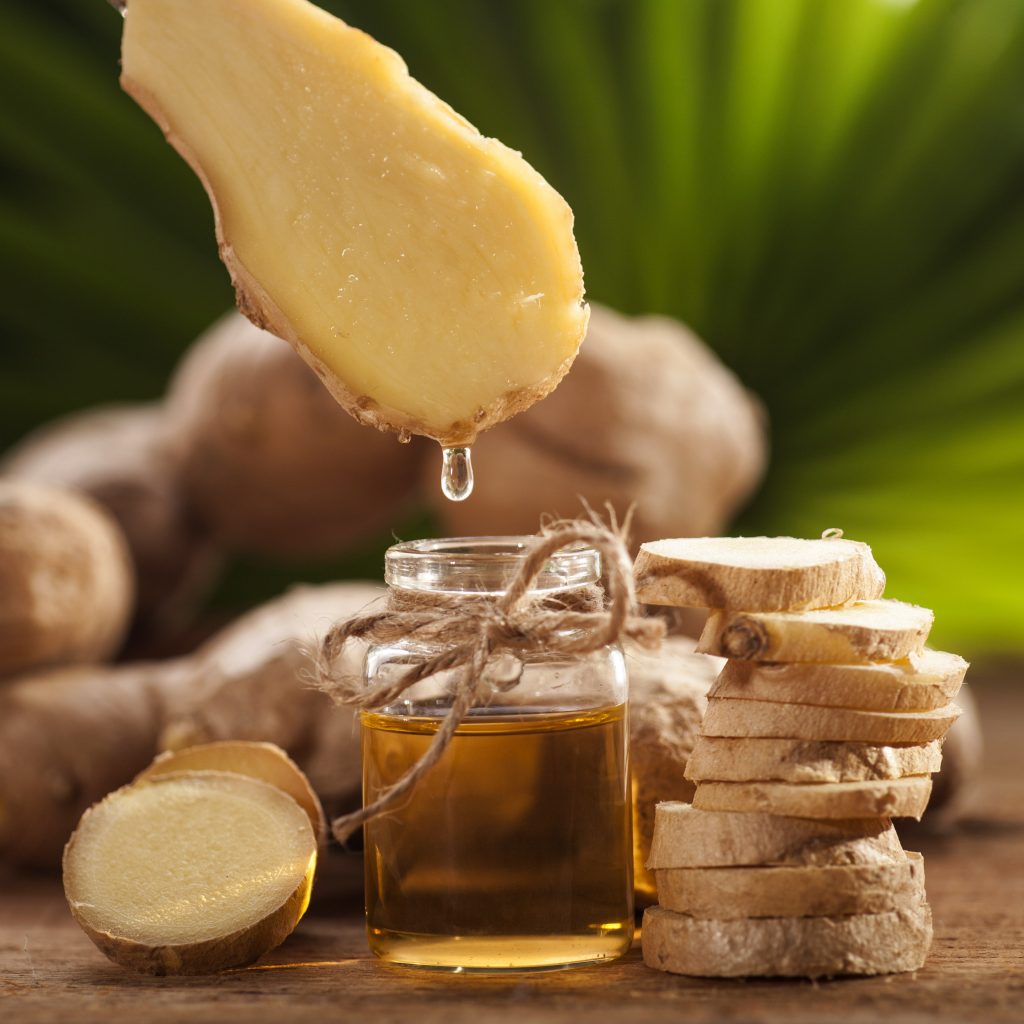
Botanical name: Zingiber Officinalis
Origin: Indonesia
Source: Dried roots
With more than 1,200 species, Ginger has been proved scientifically for treating numerous health disorders. Its name is extracted from a Sanskrit word ‘srngaveram’, which means ‘horn root’.
The color of ginger essential oil varies from pale yellow to profound amber hue. It is a thick liquid whose viscosity differs from average to watery. The essential oil obtained from the ginger roots possesses a potent, zesty, pungent, peppery and warm fragrance that resembles the smell of real ginger.
Ayurveda, the oldest healing system on earth prescribes Ginger as a remedy for indigestion, flatulence, nausea, loss of appetite, morning sickness, bronchitis, menstrual cramps, respiratory infections, arthritis, cancer and for enhancing the immune power. It is also recommended for treating fear, hopelessness, instability and for rekindling the inner fire for ultimatum.
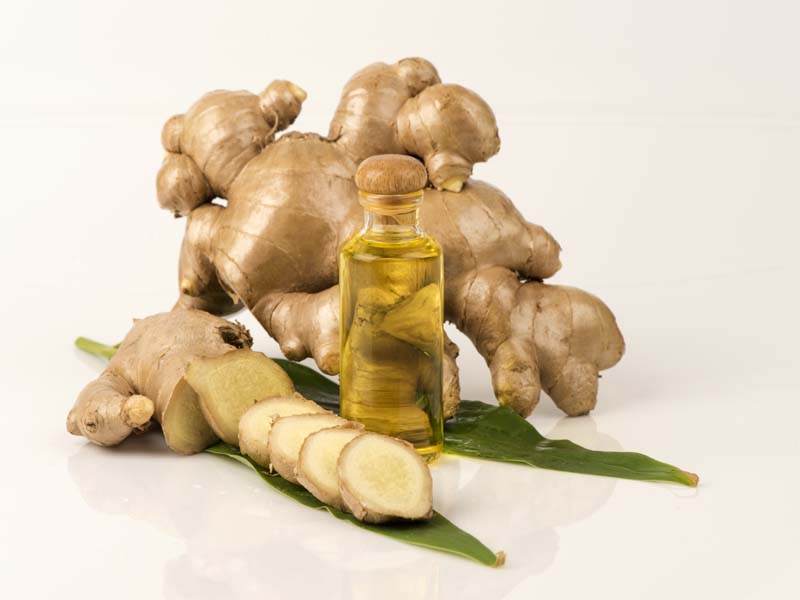
The essential oil obtained from ginger roots is popular in the West for its ability to help in digestion. In addition, ginger oil is also effective in treating toothaches, malaria, rheumatism and bacterial dysentery. When used as massage oil, ginger essential oil provides warmth to the skin. Hence, it is not surprising that ginger oil has traditionally been used to provide comfort to the body in the cold climates.
Chemical analysis of ginger essential oil has revealed that it encloses substances like gingerone, zingiberine, gingerin and gingenol. The fragrance of this oil is warm and fiery. It is also used for making perfumes. Apart from being used in medicines and perfumes, ginger essential oils are also present in many foods, soft drinks and beverages.
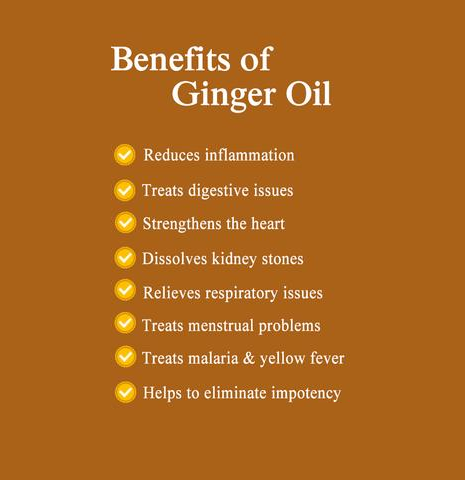
General properties
antiseptic
stimulant
tonic
Blends well with
coriander
lemon
nutmeg
General uses
arteriosclerosis
colds
coughs
diarrhea
digestive problems
fever
flatulence
lack of confidence
lack of courage
loss of appetite
nausea and vomiting
poor circulation
poor memory
rheumatism
sore throats
sprains and strains
stomach pains
tonsillitis
travel sickness
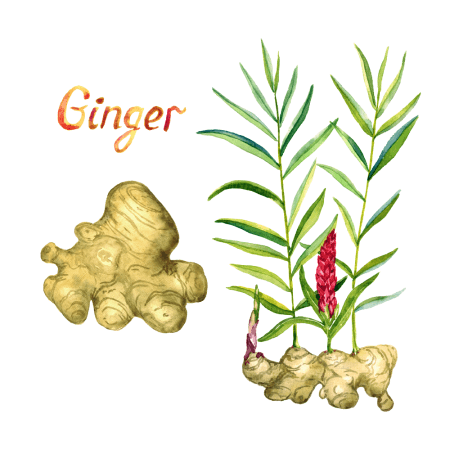
Precaution
The health benefits offered by ginger essential oil notwithstanding, one needs to use it with precaution, as it is known to result in some adverse after-effects, especially when used in high concentrations. It is important that you should always dilute this essential oil with any suitable unadulterated cold-pressed vegetable oil before use. Ginger essential oil is known to possess hypertensive properties and, hence, it should not be used on individuals enduring high blood pressure or hypertension. This oil may also cause irritation of the skin in people having sensitive skin or suffering from eczema.

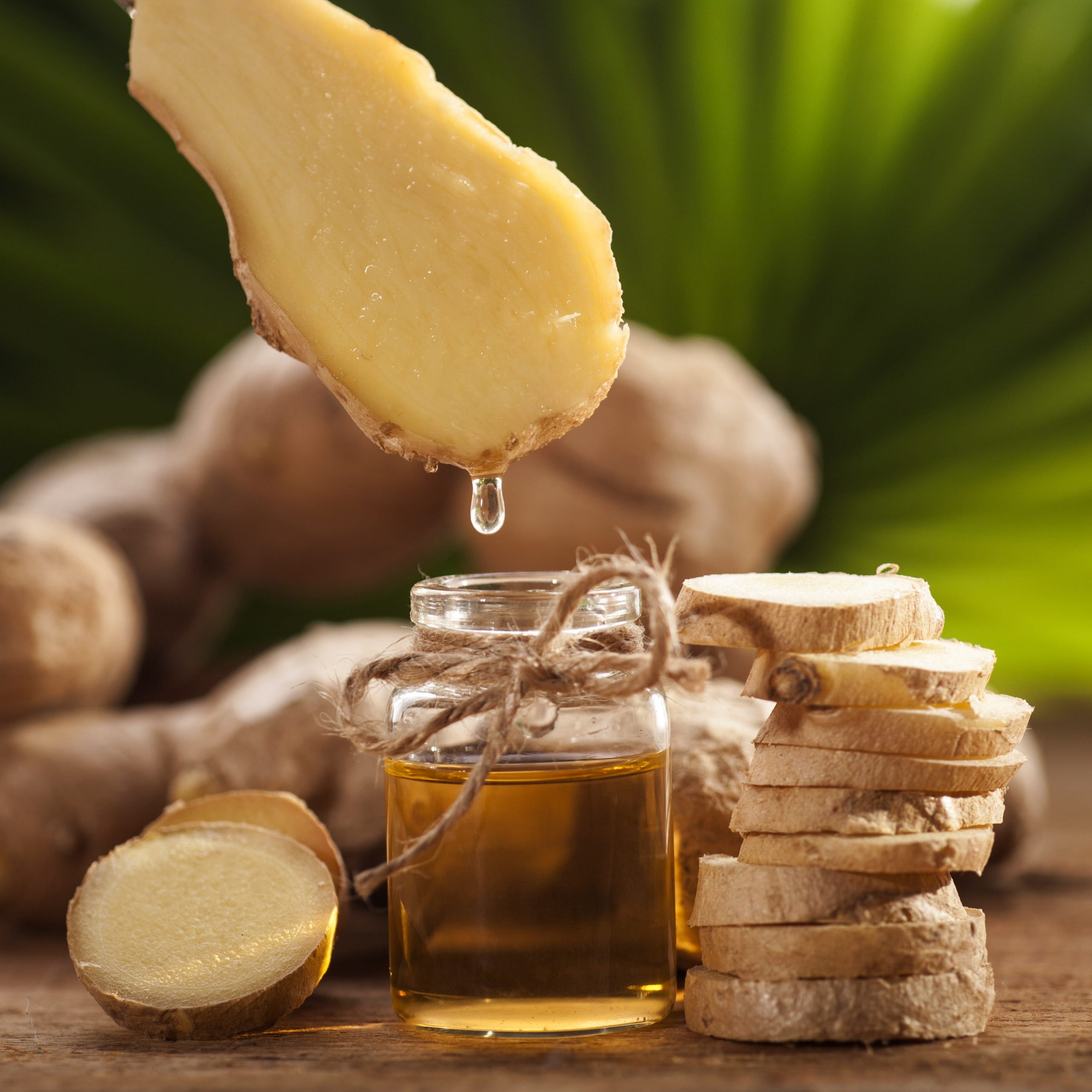
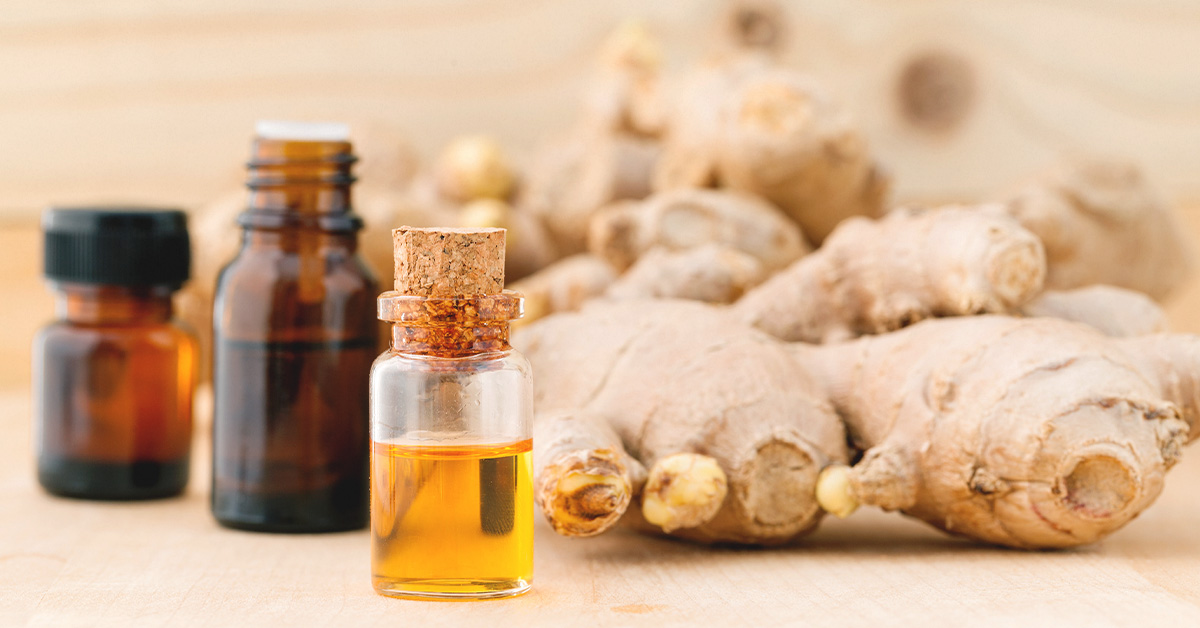
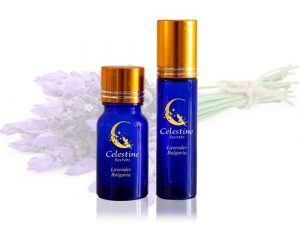
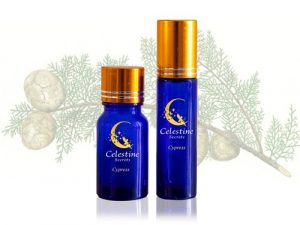
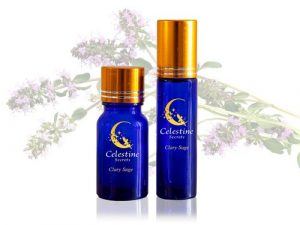
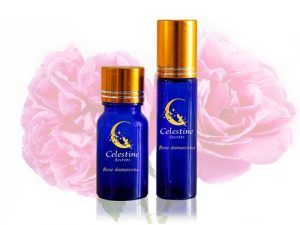
Reviews
There are no reviews yet.